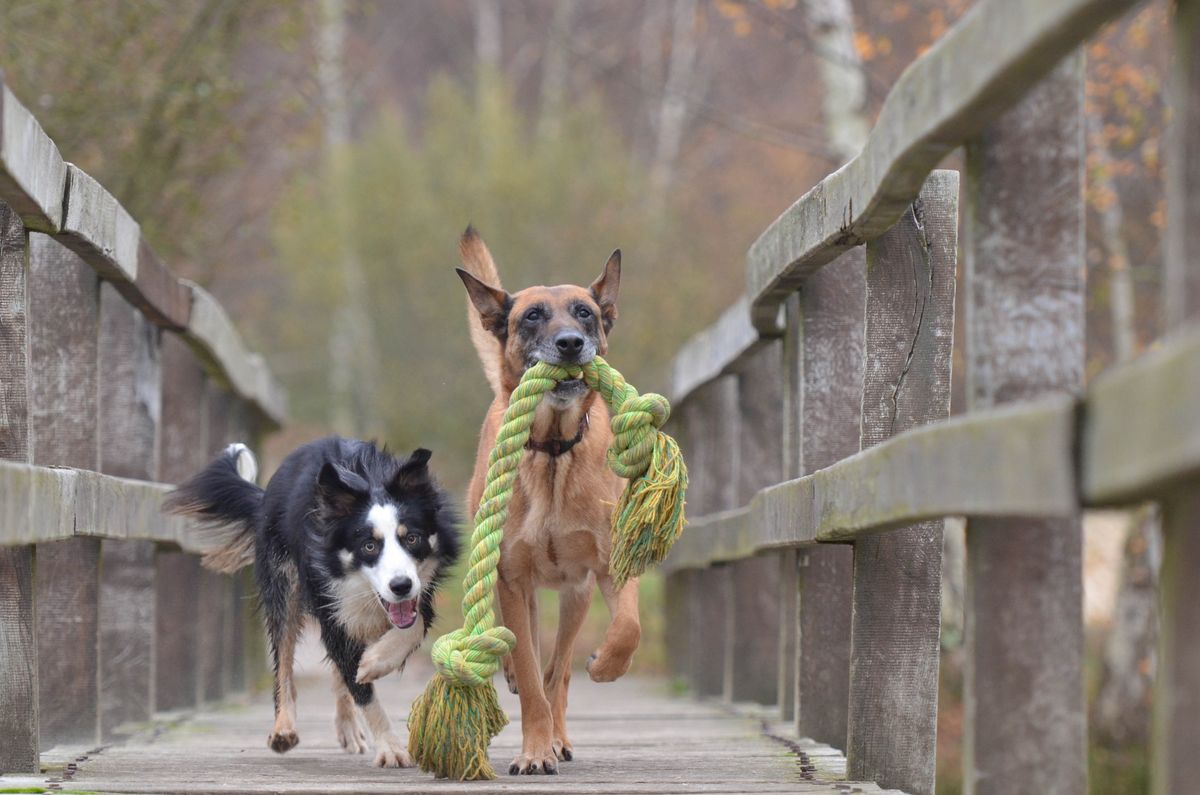Shih Tzus, with their friendly demeanor and flowing locks, have captured the hearts of many pet owners. Ensuring their health and longevity involves a comprehensive vaccination plan that guards against various diseases. This guide provides an in-depth look into the essential vaccines for Shih Tzus, the prevention of common infectious diseases, special considerations for puppies, and the importance of non-core vaccinations and overall health maintenance beyond the shots.
Key Takeaways
- Core vaccines, such as those for canine distemper, rabies, and parvovirus, are crucial for all Shih Tzus, while lifestyle vaccines are tailored to individual exposure risks.
- Preventing infectious diseases like distemper, rabies, and leptospirosis through vaccination is essential for the well-being of Shih Tzus.
- Shih Tzu puppies require a specific vaccination protocol during their first months to build up their immunity effectively.
- Non-core vaccines, including Bordetella and Lyme disease, should be considered based on the Shih Tzu’s lifestyle and risk of exposure.
- Maintaining a Shih Tzu’s health goes beyond vaccinations; regular health check-ups, microchipping, and a holistic approach to nutrition and exercise are vital.
Understanding Core and Lifestyle Vaccines for Shih Tzus

The Essential Vaccinations for Your Shih Tzu
Ensuring the health and happiness of your Shih Tzu starts with core vaccinations. These are the basic essential items needed to properly care for your Shih Tzu, applicable to both new puppies and dogs of all ages. Core vaccines protect against diseases that are most common and pose significant risk to dogs, including rabies and canine distemper.
Vaccination is a key part of your Shih Tzu’s healthcare routine. It’s not just about following legal requirements, such as the rabies vaccine, but also about preventing diseases that can severely impact your pet’s quality of life. Here’s a list of core vaccines that are generally recommended for all Shih Tzus:
- Rabies
- Canine Distemper
- Canine Parvovirus
- Infectious Canine Hepatitis
Remember, the timing of these shots is crucial. Puppies require a series of vaccinations at monthly intervals, while adult dogs need regular booster shots to maintain immunity.
Consult with your veterinarian to tailor a vaccination schedule that suits your Shih Tzu’s specific needs, taking into account their age, lifestyle, and potential exposure to various diseases.
Lifestyle Vaccines: Tailoring to Your Shih Tzu’s Needs
Beyond the core vaccinations that are essential for all Shih Tzus, there are lifestyle vaccines that should be considered based on your pet’s daily activities and the environments they are exposed to. These vaccines are tailored to protect against risks that are specific to your Shih Tzu’s way of life. For instance, if your Shih Tzu frequents dog parks, boarding facilities, or grooming salons, they may be more at risk for certain diseases like Bordetella, also known as kennel cough.
It’s crucial to assess your Shih Tzu’s lifestyle and discuss with your veterinarian which additional vaccines are appropriate. This personalized approach ensures your pup is shielded from diseases they’re most likely to encounter.
Here are some lifestyle vaccines to consider:
- Bordetella (Kennel Cough)
- Canine Influenza (Dog Flu)
- Leptospirosis
- Lyme Disease
Each vaccine comes with its own recommended schedule and may require boosters to maintain immunity. Your vet can provide guidance on the best timing for these shots, taking into account factors such as age, health status, and local disease prevalence.
Vaccine Schedules: Timing Your Shih Tzu’s Shots
Creating an optimal vaccine schedule for your Shih Tzu is crucial for their long-term health. Puppies require a series of vaccinations starting at 6 to 8 weeks of age, with subsequent shots every 2 to 4 weeks until they are around 16 weeks old. After the initial series, booster shots are typically administered every one to three years, depending on the specific vaccine and your vet’s advice.
It’s important to tailor the vaccination schedule to your Shih Tzu’s particular needs, especially if they are sensitive to vaccines or are a very small breed. Consult with your veterinarian about the possibility of spreading out vaccinations over multiple visits to allow your dog time to recover between shots.
Remember, keeping up with your Shih Tzu’s vaccinations is not just about adhering to a schedule; it’s about ensuring they are protected against diseases throughout their life. Here’s a simplified schedule to guide you:
- 6-8 weeks: Distemper, Adenovirus, Parvovirus, Parainfluenza
- 10-12 weeks: Follow-up boosters including the DHPP vaccine
- 16 weeks and older: Rabies vaccination and any additional boosters as recommended
Always discuss with your veterinarian to determine the most appropriate vaccination plan for your Shih Tzu, taking into account their individual health, lifestyle, and risk of exposure to various diseases.
Preventing Common Infectious Diseases in Shih Tzus

Combating Canine Distemper: A Must-Have Vaccine
Canine distemper is a severe and highly contagious viral disease that can have devastating effects on your Shih Tzu. Vaccination is the primary way to keep dogs protected from this virus, as there is no known cure once an infection takes hold. The DHPP vaccine, often referred to as the 5-in-1 vaccine, includes protection against canine distemper and is considered a core vaccine for all dogs.
The DHPP vaccine also covers:
- Canine adenovirus types 1 and 2 (hepatitis and kennel cough)
- Canine parainfluenza
- Canine parvovirus
These diseases, like distemper, are not only highly contagious but also pose serious health risks with high fatality rates if left unvaccinated. It’s crucial to adhere to the recommended vaccination schedule to ensure your Shih Tzu remains healthy and well-protected.
The DHPP vaccine is typically administered in a series of shots during the first few months of a puppy’s life, followed by booster shots throughout adulthood. This schedule is vital for maintaining immunity against these dangerous diseases.
Remember, the cost of prevention through vaccination is far less than the potential medical expenses and emotional toll associated with treating a dog that has contracted distemper or another preventable disease.
The Importance of Rabies Vaccination
The rabies vaccine is a critical component of your Shih Tzu’s health regimen. Not only does it protect your beloved pet from a fatal disease, but it is also typically required by law due to its significance in preventing the spread of rabies to humans and other animals.
Vaccination against rabies is not just a medical necessity; it’s a social responsibility that safeguards the community and wildlife.
Rabies is almost always deadly once symptoms appear, making prevention through vaccination the only reliable method of protection. For Shih Tzus, the vaccination schedule for rabies is determined by local regulations and veterinary guidelines, which often dictate the frequency of booster shots.
- Initial rabies vaccination is usually administered at 12 to 16 weeks of age.
- A booster shot is often required 1 year after the initial vaccination.
- Subsequent boosters are typically given every 1 to 3 years, depending on the vaccine type and local laws.
Protecting Your Shih Tzu from Parvovirus and Leptospirosis
Parvovirus and leptospirosis are serious infectious diseases that can pose significant health risks to your Shih Tzu. Vaccination is the cornerstone of prevention for these diseases, with parvovirus vaccinations starting as early as 6 to 8 weeks of age. Following the initial series, regular booster shots are necessary to maintain immunity throughout your pet’s life.
Other measures to protect your Shih Tzu from parvovirus include:
- Scheduling regular vet checkups for timely vaccinations and expert guidance.
- Minimizing exposure to high-risk areas such as dog parks until full vaccination is achieved.
- Practicing good hygiene by cleaning and disinfecting toys, bowls, and bedding.
While parvovirus is preventable, it remains a threat, particularly to unvaccinated puppies. Responsible pet ownership and preventive measures are essential in reducing the risk of exposure.
Leptospirosis, on the other hand, is often contracted through contact with contaminated water. To minimize the risk, avoid letting your Shih Tzu drink from or wade in standing or flowing water during walks. The leptospirosis vaccine should be strongly considered, especially if you live in an area where the disease is prevalent.
Special Considerations for Shih Tzu Puppies

The Critical First Months: Puppy Vaccination Protocol
During the critical first months of a Shih Tzu puppy’s life, their immune system is still developing, making them more vulnerable to diseases. It’s crucial to follow a structured vaccination protocol to ensure they are adequately protected as they grow.
Puppies should start their vaccination series at 6 to 8 weeks of age, with subsequent doses administered at monthly intervals. This series typically includes core vaccines such as rabies, canine distemper, and parvovirus, as well as other recommended vaccines based on the puppy’s environment and lifestyle.
The following table outlines a basic vaccination schedule for Shih Tzu puppies:
| Age (weeks) | Vaccines Administered |
|---|---|
| 6-8 | First DHPP |
| 10-12 | Second DHPP |
| 14-16 | Third DHPP, Rabies |
Remember, it’s essential to limit a Shih Tzu puppy’s exposure to public areas until their puppy vaccination series is complete, which is usually at the 16-month mark. This helps to minimize the risk of contracting infectious diseases while their immunity is still building.
Understanding Immunity: Why Puppies Need More Shots
Shih Tzu puppies, like all young canines, have immature immune systems making them more vulnerable to infections. Their immunity is initially provided by their mother’s milk, but this protection is temporary and diminishes as they grow. To build their own immunity, puppies require a series of vaccinations.
Vaccinations are crucial during the first few months of a Shih Tzu puppy’s life. They help protect against diseases such as rabies, distemper, and parvovirus. The typical vaccination schedule involves shots at 8, 12, and 16 weeks, with each vaccine given at monthly intervals. Here’s a simplified schedule:
- 8 weeks: First round of core vaccines
- 12 weeks: Second round of core vaccines
- 16 weeks: Final round of core vaccines and rabies vaccine
It’s important to adhere to this schedule closely to ensure your puppy is fully protected as they explore their new world.
Remember, the immunity from vaccines does not last forever. Booster shots are necessary to maintain protection as your Shih Tzu grows. The frequency of these boosters can vary, so it’s essential to consult with your veterinarian for the best advice tailored to your pet’s needs.
Intestinal Parasite Screening and Vaccination
Intestinal parasites such as hookworms, whipworms, roundworms, and tapeworms are not uncommon in Shih Tzu puppies. These parasites can significantly affect your puppy’s health, leading to symptoms like weakness and illness. Fecal testing is crucial for identifying these parasites, and if your Shih Tzu tests positive, prompt treatment is necessary. Although treatment incurs an additional cost, it is generally affordable and effective in eradicating the parasites.
Vaccination against certain parasites may also be recommended as part of your Shih Tzu’s health regimen. While not all intestinal parasites have vaccines available, prevention is key, and your veterinarian can provide guidance on the best preventative measures.
Remember, some intestinal parasites can be transmitted to humans, making it essential to address any infestation promptly to protect both your pet and your family.
Here is a brief overview of common intestinal parasites and their prevalence in Shih Tzus, based on a recent study:
| Parasite Infestation | Prevalence (%) |
|---|---|
| Hookworms | 4.0 |
| Whipworms | 3.3–4.9 |
| Roundworms | 4.4 |
| Tapeworms | 3.5 |
Bordetella and Other Non-Core Vaccinations

Is the Bordetella Vaccine Right for Your Shih Tzu?
When considering the Bordetella vaccine for your Shih Tzu, it’s important to assess your dog’s risk of exposure to kennel cough, especially if they frequent boarding facilities or dog parks. The Bordetella vaccine is often recommended for dogs that are regularly socializing with other canines.
- Bordetella is highly contagious among dogs.
- The vaccine can be administered intranasally or by injection.
- It’s typically given annually, but the schedule may vary based on your vet’s recommendation.
While not a core vaccine, Bordetella is crucial for dogs in communal settings to prevent the spread of kennel cough.
Remember to determine a vaccination schedule that fits your dog’s needs, as Bordetella and other lifestyle vaccines may require yearly jabs. Consult with your veterinarian to make an informed decision about whether this vaccine is necessary for your Shih Tzu, taking into account their specific lifestyle and health status.
Assessing the Need for Lyme and Lepto Vaccines
When considering non-core vaccines for your Shih Tzu, Lyme and leptospirosis (lepto) vaccines are often discussed. The Lyme disease vaccine is not considered a core vaccine and may be recommended based on your dog’s risk of exposure. The cost for the Lyme vaccine can range from $37 to $49. Leptospirosis, while not a core vaccine, is increasingly recommended, especially if your Shih Tzu spends time outdoors or in areas where wildlife is present.
The decision to vaccinate against Lyme and leptospirosis should be tailored to your Shih Tzu’s lifestyle and the prevalence of these diseases in your area.
Recent advancements have made the lepto vaccine safer, with a very low reaction rate. It’s important to weigh the benefits of vaccination, which include protecting not only your pet but also your family and community from zoonotic diseases. Consult with your veterinarian to determine the best course of action for your Shih Tzu.
Vaccination and Your Shih Tzu’s Lifestyle: Boarding and Socialization
When considering your Shih Tzu’s social activities, such as boarding or playdates, vaccinations play a pivotal role in ensuring their safety and the safety of other pets. Boarding facilities often require proof of vaccinations, and without them, your Shih Tzu may not be permitted to stay.
Vaccinations are not just about compliance with boarding requirements; they are a critical component of your pet’s health and social well-being.
For Shih Tzus that frequently interact with other dogs, the Bordetella vaccine, commonly known as the kennel cough vaccine, is highly recommended. Here’s a quick checklist for social Shih Tzus:
- Ensure core vaccines are up to date.
- Consider lifestyle vaccines like Bordetella for kennel stays.
- Keep a record of vaccination dates for easy reference.
- Schedule booster shots as recommended by your vet.
Remember, staying current with your Shih Tzu’s vaccinations can prevent the spread of infectious diseases and facilitate a more active and social lifestyle for your furry friend.
Maintaining Your Shih Tzu’s Health Beyond Vaccination

Regular Health Check-Ups and Booster Shots
Ensuring your Shih Tzu remains healthy involves more than just initial vaccinations; regular health check-ups and booster shots are crucial. These annual exams are not only about getting vaccines but also about assessing your pet’s overall health. During these visits, veterinarians check vital signs, skin and coat condition, lung and cardiac function, internal health, oral hygiene, and behavior.
Regular veterinary exams serve as the first line of defense in your Shih Tzu’s health care regimen, helping to detect any issues early on.
Booster shots are necessary to maintain immunity against diseases like leptospirosis, with the frequency depending on the specific vaccine used. It’s important to adhere to the schedule your veterinarian recommends. For Shih Tzus that may be sensitive to vaccines or are particularly small, consider discussing with your vet the option of spacing out vaccines over multiple visits.
- Annual wellness exams
- Temperature and vital signs check
- Examination of skin, coat, and oral hygiene
- Assessment of lung, cardiac, and internal health
- Behavior analysis
- Adherence to booster shot schedules
Microchipping: A Safety Net for Lost Pets
Microchipping your Shih Tzu offers a permanent form of identification that remains with them for life. Unlike collars or tags that can be lost or removed, a microchip is a reliable way to ensure your pet can be identified and returned to you if they ever get lost. Microchipping is a simple, quick, and affordable procedure that can bring peace of mind to any pet owner.
It’s crucial to keep your contact information up to date in the microchip registry. Should your Shih Tzu wander off, this updated information is the key to a happy reunion. The process of updating your details is straightforward and can usually be done online or over the phone.
Microchips are designed to last for 25 years, which means they don’t require maintenance or replacement throughout your pet’s lifetime. This makes them a one-time investment in your Shih Tzu’s safety.
Remember, while microchipping greatly increases the chances of recovering a lost pet, it is not a substitute for a collar and ID tag, which can provide immediate contact information to the finder.
Holistic Health: Nutrition, Exercise, and Preventative Care
Integrating holistic pet care into your Shih Tzu’s routine is about more than just responding to illnesses; it’s a proactive approach to your pet’s well-being. Unlike traditional methods which often focus on treating symptoms, holistic care emphasizes prevention and the treatment of underlying causes of health issues.
A cornerstone of holistic health is nutrition. A balanced diet tailored to your Shih Tzu’s age, weight, and activity level is crucial. It’s not just about the food they eat, but also how it contributes to their overall health. Here are some key components of a nutritious diet for your Shih Tzu:
- High-quality protein sources
- Essential fatty acids
- Digestible carbohydrates
- Vitamins and minerals
Exercise is equally important in maintaining your Shih Tzu’s health. Regular physical activity supports cardiovascular health, helps manage weight, and can improve behavioral issues by providing mental stimulation.
Remember, preventative care also includes regular health check-ups, dental care, and addressing behavioral changes swiftly. These steps are vital in catching potential health issues before they become serious problems.
Conclusion
Ensuring the health and well-being of your Shih Tzu involves more than just regular grooming and affection; vaccinations play a crucial role in protecting your furry friend from a variety of diseases. As we’ve explored in this guide, keeping up with your pup’s vaccination schedule is essential for preventing illnesses such as parvovirus, distemper, and rabies. Remember that each dog’s needs may vary, so consult with your veterinarian to tailor a vaccination plan that’s right for your Shih Tzu’s age, lifestyle, and health status. By staying informed and proactive about your dog’s vaccinations, you’re taking a significant step towards a long, happy, and healthy life together. Don’t forget to also check out our related articles and resources for more ways to care for your beloved companion.
Frequently Asked Questions
What are the essential vaccinations for my Shih Tzu?
The essential vaccinations for Shih Tzus include rabies, canine distemper, parvovirus, and adenovirus. These core vaccines are crucial for your pet’s health.
How often does my Shih Tzu need booster shots?
Booster shots for core vaccines are typically required every 1-3 years, depending on the specific vaccine. Your vet can provide a schedule tailored to your Shih Tzu’s needs.
At what age should Shih Tzu puppies start their vaccinations?
Shih Tzu puppies should start their vaccination series at around 6 to 8 weeks of age, with boosters given at monthly intervals until they are about 16 weeks old.
Are there any non-core vaccines my Shih Tzu might need?
Non-core vaccines, such as Bordetella for kennel cough, Lyme disease, and leptospirosis vaccines, may be recommended based on your Shih Tzu’s lifestyle and risk of exposure.
Is the rabies vaccine mandatory for Shih Tzus?
Yes, the rabies vaccine is required by law for all dogs, including Shih Tzus, in many areas. It’s important for public health as well as your pet’s safety.
What should I do if my Shih Tzu has an adverse reaction to a vaccine?
If your Shih Tzu shows signs of an adverse reaction to a vaccine, such as swelling, hives, or difficulty breathing, contact your veterinarian immediately for advice and treatment.




